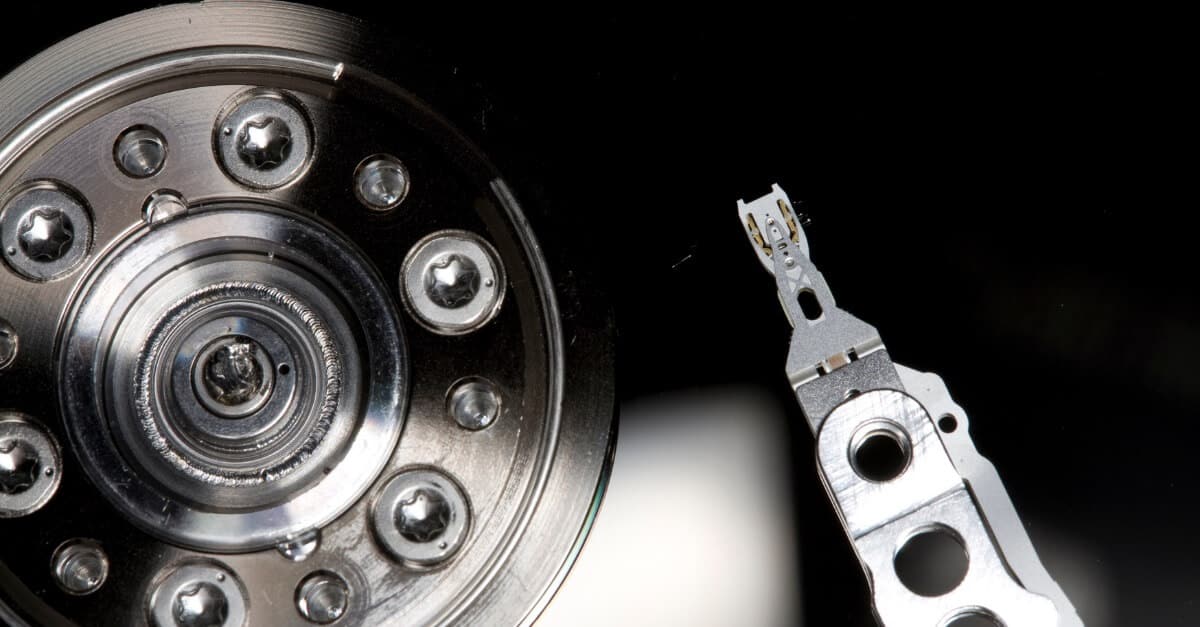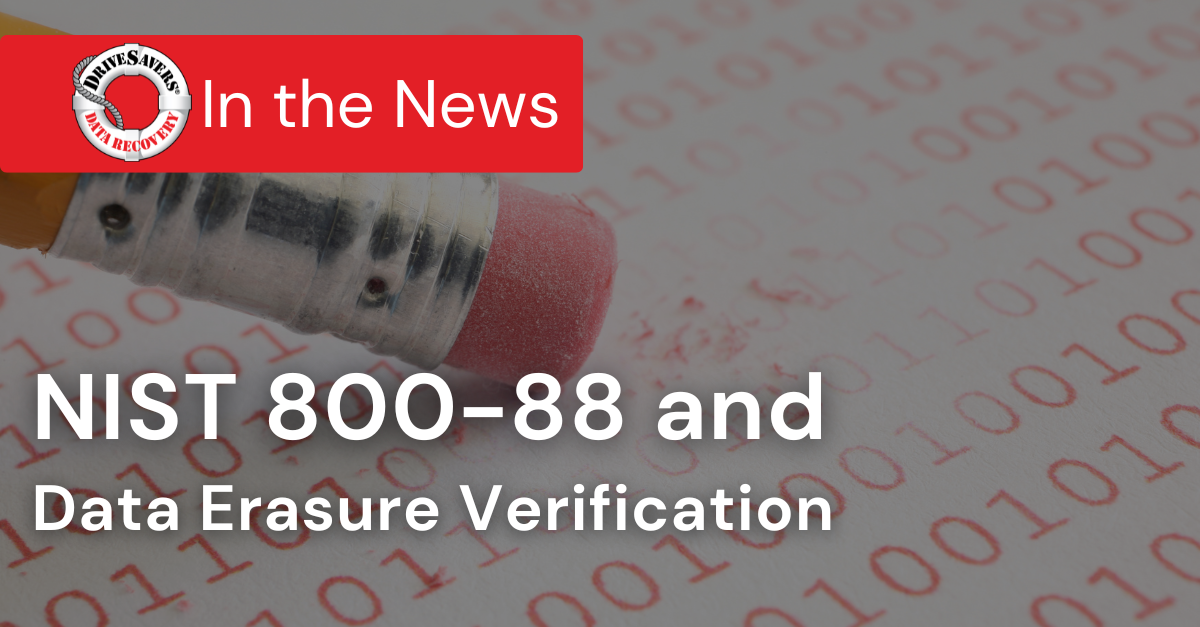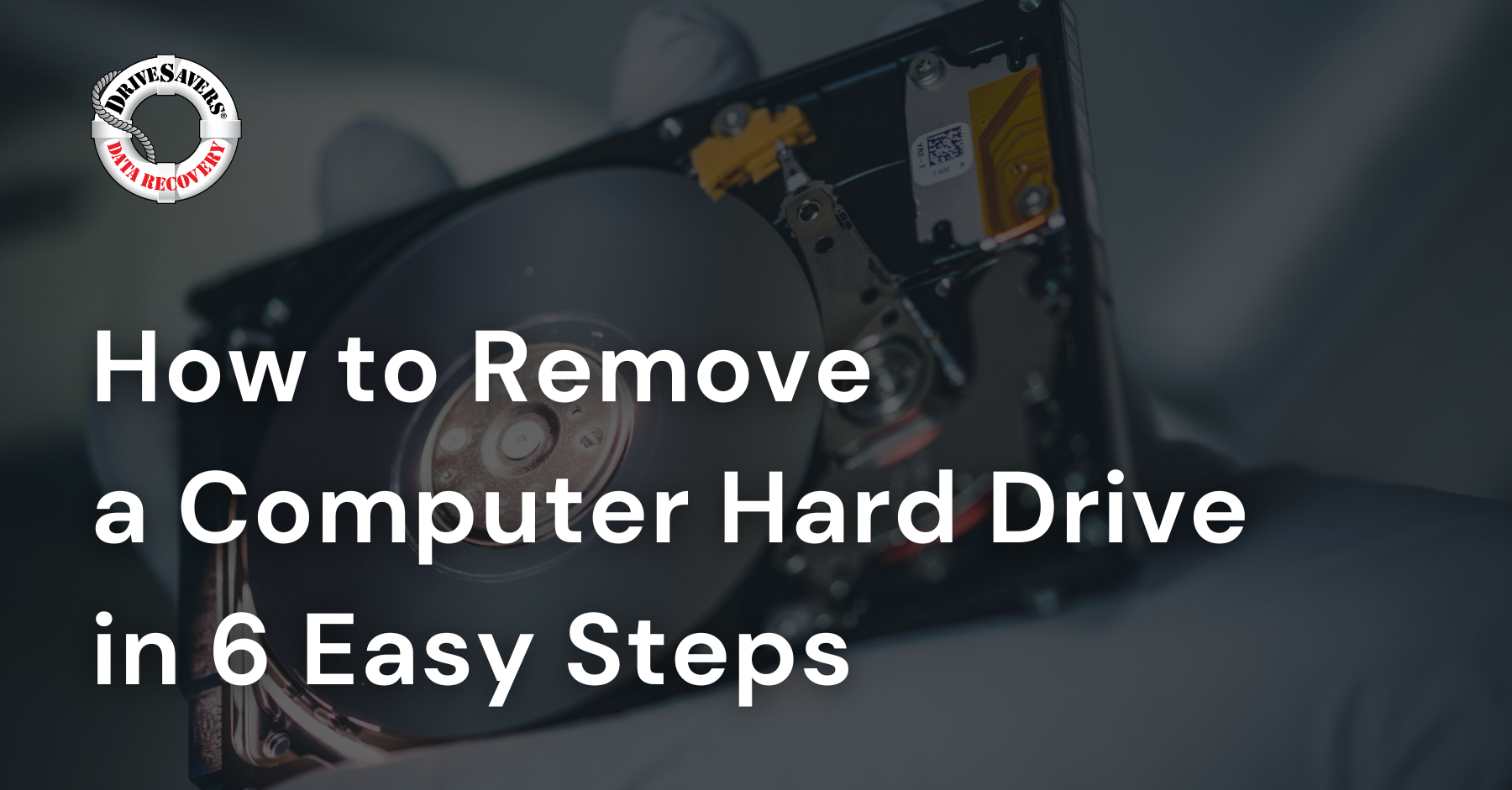In this article, we’ll break down what NIST 800-88 actually requires, why storage media of all types can defy expectations, and how verification services close the gap between intention and assurance.
Is Bigger Better? How to Choose the Right Hard Drive Sizes

Humanity has long been plagued with the question, does size matter? Some say bigger is always better. Others believe size should be influenced by how the product will be used. So, who’s right?
Unfortunately, there’s no universal answer. From supersized fast food to pickup trucks with six doors, marketers have trained consumers to focus mostly on size—even when it comes to hard drive sizes.
So what does this mean for your next tech purchase? What is a normal hard drive size and what should your laptop hard drive size be? There’s a wide hard disk storage capacity range and deciding what you need can be a challenge. But when you consider the right factors, you can easily determine what drive size you need for your devices.
The role of hard drive sizes
You probably know that a hard drive is where the device stores your precious photos, videos and document files. Since a hard drive is simply your computer’s memory, hard drive capacity has little to do with performance and everything to do with how much content your device can hold. And this holds true unless the disk is nearly full. Any operating systems (OS), including Windows, requires a specific amount of available hard drive space to run properly.
A PC that runs on Windows needs 10 to 15% of a hard drive’s storage to function. For the sake of simplicity, we’ll use the example of a 100GB drive. In this case, you would need to allow at least 10 to 15GB for the OS. If you don’t have enough free space for the OS to access, you’ll experience a significant decline in your computer’s performance.
When you’re choosing hard drive sizes, look for a drive with a capacity well beyond what you need to store your data. Think about how much data you currently have and how much you anticipate adding over the life of your computer. Then add at least another 15% to ensure you’ll have plenty of storage capacity for your OS.
The importance of speed
Hard disk size is important, especially if you have a lot of information to store or plan to create a great deal of data in the near future. But speed is another important consideration.
Speed in Hard Disk Drives (HDD)
HDDs are powered by motors. Regardless of HDD size, the faster the motor spins, the more quickly information is read and written to the disk.
We determine the speed of HDD motors in revolutions per minute (RPM), which is a measure of rotational power. Desktops usually top out at 15,000 RPM. In contrast, laptop HDDs are slower at around 7,200 to 5,400 RPM. As with all decisions on a new computer, the speed of the hard drive should ultimately depend on how you’ll be using it. Of course, no one ever regrets investing in speed! So you’ll probably want to buy the fastest motor available for your desktop or laptop’s hard drive—especially if your computer will be used for gaming or storing multimedia files.
Speed in Solid State Drives (SSD)
Most hard drives in today’s consumer electronics use solid state technology are SSDs. They have no moving parts, not even a motor. That means no RPMs. SSD speed is measured by how quickly the drive can read or write digital data, specifically in MBs per second (MB/s).
Just as RPMs are independent of drive size in an HDD, so too are MB/s and hard drive capacity in an SSD. You can purchase minimal space with maximum speed, large capacity with low performance or anything in between. Your choice will be all about how much space you need and how you plan to use the drive.
Computer hard disk size
We’ve already talked briefly about the storage capabilities of HDDs within desktops and laptops. But the device you plan to use with your hard drive is actually another important consideration. Before deciding on hard disk size—or any other aspect of your disk—think through how the device will be used.
Do you need a desktop just for casual use? Or are you a gamer that requires far more capability than creating documents and spreadsheets? Do you need a laptop just to work or study remotely? Maybe your business is of a sensitive nature that precludes uploading data to a cloud.
But for most purposes, what is a good hard disk size? It depends if you’re getting a laptop or desktop machine
Desktop hard drive size
Desktops usually have larger hard drives, because they can physically fit a larger disk. They’re also more likely to be shared with other people and so need enough storage capacity to fit data from several users at the same time. Standard hard drives for desktops run from 500GB (or smaller!) to as large as several a terabytes (TB) in size (or larger!). But given the accessibility of cloud storage, the everyday user doesn’t usually need a large capacity hard drive.
Laptop Hard Drive Size
Most laptops have less storage than desktops because they’re physically smaller. The space constraints limit the hard drive capacity. Those same space constraints increase the overall cost of the computer because smaller is much harder to engineer and manufacture.
Figuring out the right hard drive size can be a challenge, but take the time to consider how you want to use your device, you’ll know how much you’ll need.
If your last disk failed, you’re going to need a new hard drive! But you’ll still need your old data. Call DriveSavers to learn how we can help you recover lost data.





